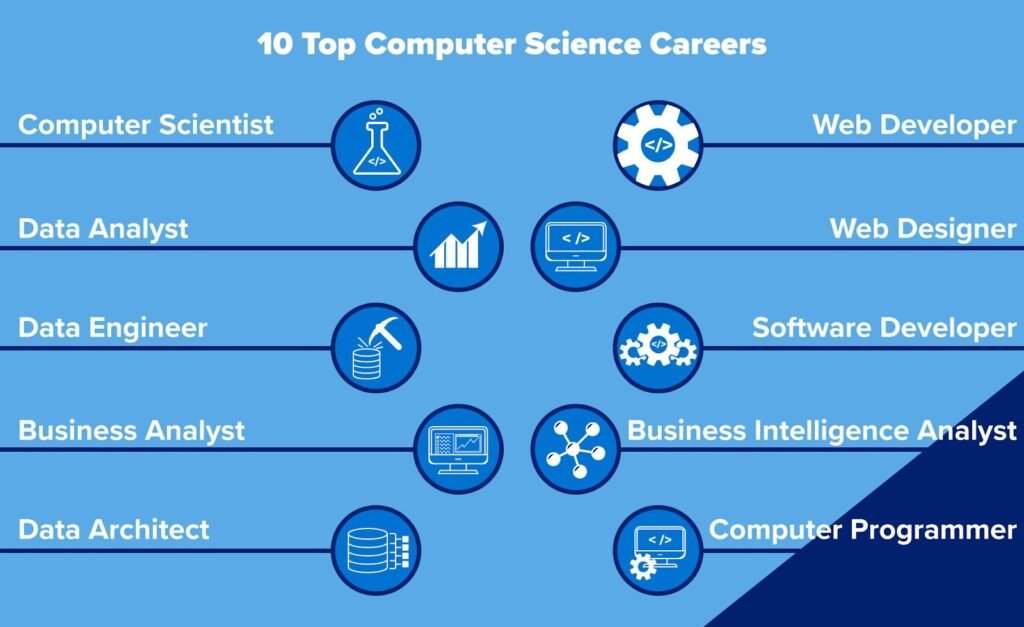
Computer science is a vast and diverse field that encompasses a wide range of subfields and specializations. Some of the different fields of computer science include:
Artificial Intelligence (AI): AI focuses on creating machines that can perform tasks that typically require human intelligence, such as problem-solving, natural language understanding, and machine learning.
Machine Learning: This subfield of AI is concerned with developing algorithms and models that enable computers to learn from and make predictions or decisions based on data.
Data Science: Data science involves extracting knowledge and insights from large datasets. It combines elements of computer science, statistics, and domain knowledge to analyze and interpret data.
Computer Graphics: Computer graphics deals with the creation, manipulation, and rendering of visual images and animations. It is used in video games, movies, virtual reality, and computer-aided design (CAD).
Computer Vision: Computer vision aims to enable computers to interpret and understand visual information from the world, such as images and videos. It has applications in object recognition, image analysis, and autonomous vehicles.
Database Systems: This field focuses on designing and managing databases, which are used to store and retrieve structured data efficiently. Database administrators and developers work in this area.
Software Engineering: Software engineering involves the systematic design, development, testing, and maintenance of software systems. It includes principles and practices for creating reliable, scalable, and maintainable software.
Computer Networks: Computer networking is concerned with the design, implementation, and management of communication systems that connect computers and devices, including the internet.
Cybersecurity: Cybersecurity specialists work to protect computer systems and networks from unauthorized access, data breaches, and cyberattacks.
Human-Computer Interaction (HCI): HCI focuses on the design and evaluation of user interfaces and the interaction between humans and computers. It aims to make technology more user-friendly.
Distributed Systems: Distributed computing deals with systems in which components are located on multiple computers and communicate to achieve a common goal. Examples include cloud computing and peer-to-peer networks.
Theory of Computation: This field explores the fundamental principles of computation, including formal languages, automata theory, and computational complexity.
Algorithms: Algorithms are essential to computer science, and this field is dedicated to the design, analysis, and optimization of algorithms for solving various computational problems.
Operating Systems: Operating systems are software that manage computer hardware and provide services for running applications. This field involves the study of OS design and implementation.
Robotics: Robotics combines computer science with mechanical engineering to create and control robots that can perform tasks in various environments, from manufacturing to space exploration.
Bioinformatics: Bioinformatics applies computational techniques to analyze and interpret biological data, including DNA sequences, protein structures, and gene expression data.
Natural Language Processing (NLP): NLP focuses on enabling computers to understand, process, and generate human language. It is used in chatbots, language translation, and sentiment analysis.
Quantum Computing: Quantum computing explores the use of quantum-mechanical phenomena to perform computation, potentially solving certain problems much faster than classical computers.
These are just some of the many fields within computer science, and each field has its own specialized knowledge, techniques, and applications. Computer scientists often collaborate across these domains to solve complex problems and develop innovative technologies.
